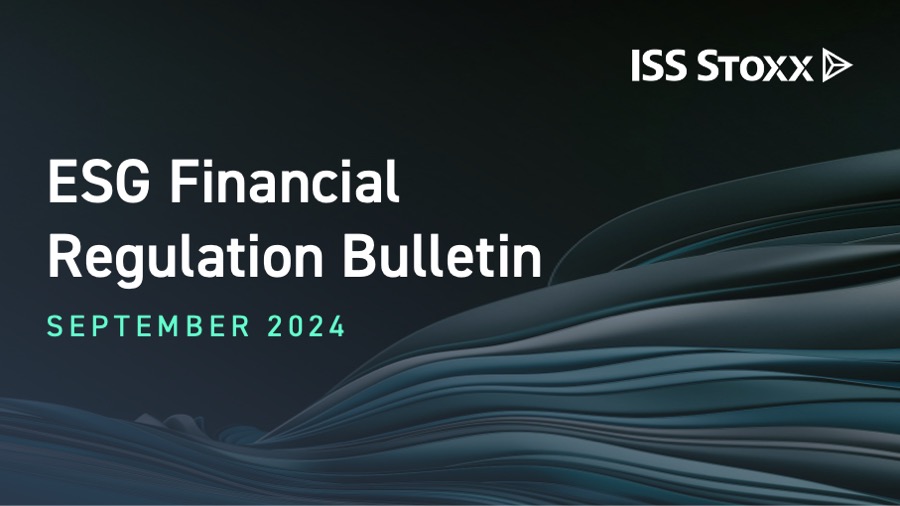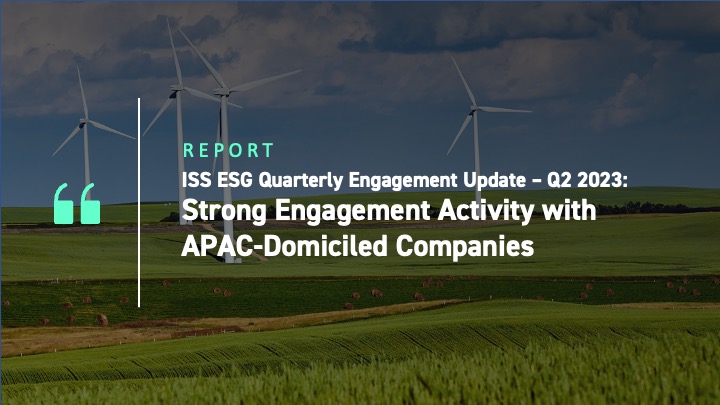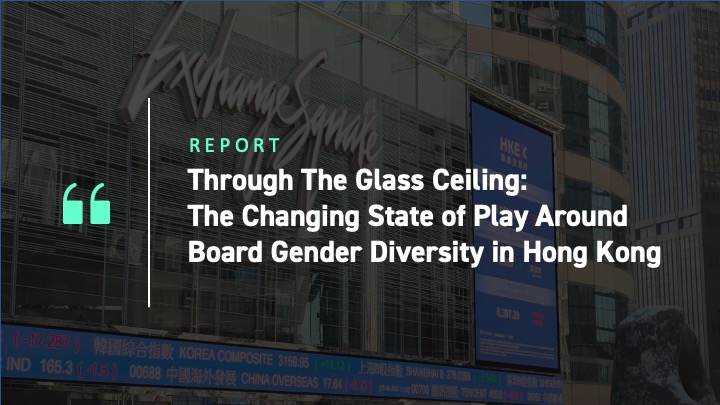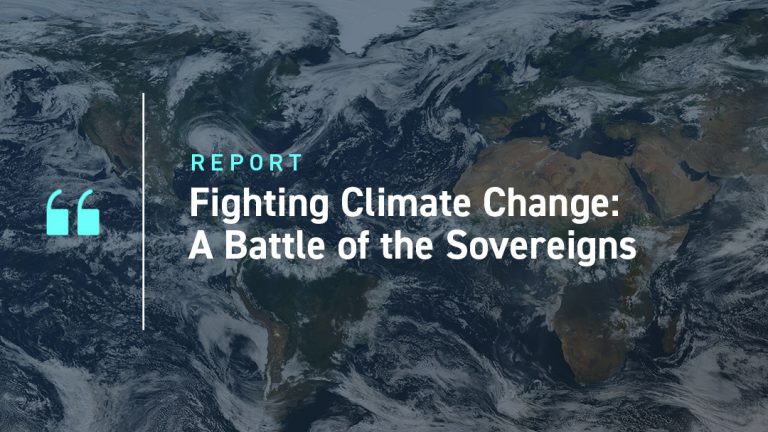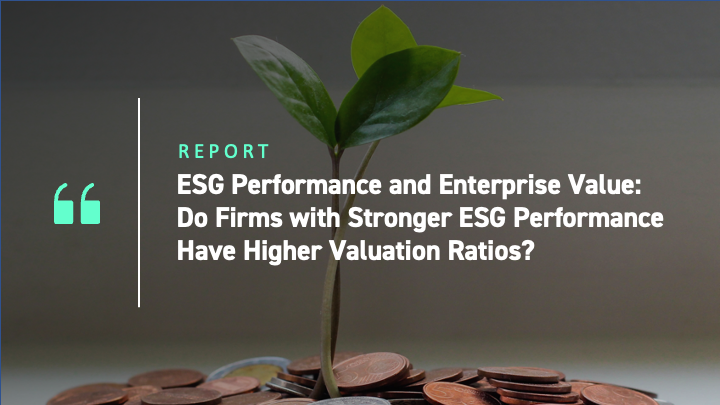International
IFRS Foundation
International Accounting Standards Board Publishes Examples to Support Companies’ Climate-Related Reporting in their Financial Statements
The International Accounting Standards Board (IASB) released a consultation document on July 31 with eight illustrative examples on how companies could apply the International Financial Reporting Standards (IFRS) Accounting Standards when reporting on climate-related risks. The IASB collaborated with the International Sustainability Standards Board (ISSB) to develop the standards. The eight examples were published to address stakeholder concerns over the adequacy and consistency of corporations’ climate risk reporting. The examples were designed to help address both climate-related uncertainties and financial uncertainties more broadly. The IASB’s examples particularly focus on materiality judgements, assumptions and estimation disclosures, and the disaggregation of information. The consultation is open until November 28.
IFRS Foundation Publishes Implementation Guide for Digital Taxonomies
The IFRS Foundation released a guide on August 1 outlining how regulators could most effectively implement the IFRS’ Accounting and Sustainability Disclosure digital taxonomies. The guide outlines what digital filing systems should be used to best promote the “cross-border digital comparability and analysis” of information disclosed against the IFRS’ Accounting and Sustainability Disclosure Standards.
TNFD
Taskforce on Nature-related Financial Disclosures and Global Reporting Initiative Releases Interoperability Mapping for Biodiversity Reporting
The Taskforce on Nature-related Financial Disclosures (TNFD) and the Global Reporting Initiative (GRI) jointly published a guidance document and correspondence table on July 30 to detail alignment between the two organizations’ reporting recommendations and metrics on nature-related issues. The TNFD and GRI had previously collaborated to ensure compatibility between the TNFD Recommendations and the GRI Biodiversity Standards. The newly released mapping resources provide clarification and insights on a range of issues, including nature-related “concepts and definitions,” approaches to materiality, disclosures, TNFD sector metrics, and risk and opportunity identification.
GRI
Global Reporting Initiative Concludes Pilot Program to Promote Sustainable Business Practices in the Philippines
The GRI, in collaboration with the Philippines Department of Trade & Industry (DTI), concluded its “Sustainable Practices and Reporting Kickoff” (SPARK) initiative in the Philippines on August 26. The SPARK program consisted of three plenary sessions aimed at educating Micro, Small, and Medium Enterprises (MSMEs) on the risk- and performance-related benefits of sustainability practices. During the sessions, the GRI worked to help local companies develop their non-financial disclosure and reporting skills. The SPARK program kicked off a five-year collaboration initiative between the GRI and DTI, with a focus on “embedding sustainability in the value chain of MSMEs.” The initiative will focus on several key sustainability topics, including supply chain management and responsible procurement.
SBTi
Science Based Targets Initiative Publishes Four Technical Documents as Part of Corporate Net-Zero Standard Review
The Science Based Targets initiative (SBTi) released four technical documents on July 30 covering its early findings from the Corporate Net-Zero Standard Review. As part of its release, the SBTi published a discussion paper for public comment covering the most effective approaches for Scope 3 emissions target setting and tracking the latest developments and research relating to Scope 3 disclosures. The release includes another paper that aggregates all evidence submitted to the SBTi during its consultation on Environmental Attribute Certificates; the summated results from the SBTi’s consultation on the use of carbon credits as part of corporate climate targets; and a review paper examining the results and limitations of third-party academic literature on the effectiveness of carbon credits as a substitute for direct abatement. The SBTi will continue its Review of the Net-Zero Standard in accordance with the Terms of Reference published on May 9. The SBTi aims to release its latest draft Corporate Net-Zero Standard by Q4 2024.
Asia Pacific
Hong Kong
Hong Kong Monetary Authority and Dubai Financial Services Authority Announce Inaugural Climate Conference
The Hong Kong Monetary Authority (HKMA) and Dubai Financial Services Authority (DFSA) announced on August 22 that they will co-host a Joint Climate Finance Conference on September 16. The Conference will focus on joint opportunities and difficulties in promoting transition finance. The Conference is the first initiative of the HKMA-DFSA sustainable finance partnership that was first introduced in December 2023.
Malaysia
Malaysian Joint Committee on Climate Change Announces Climate-Related Data Initiatives
The Bank Negara Malaysia (BNM) and the Securities Commission Malaysia (SCM) published the conclusions of the thirteenth meeting of the Joint Committee on Climate Change (JC3). The members of the JC3 agreed to three initiatives to improve climate-related data availability and reduce the reporting burden on Malaysian corporations. First, the Malaysian government will collaborate with “financial sector players involved in data collection and reporting” to develop national emissions factors for key industrial sectors. Second, financial institutions will be able to make use of standardized templates to gather climate-related data from customers. Last, the JC3 will help create the Climate Finance Innovation Lab. The lab aims to bring together various industries to create financial solutions for “climate transition, adaptation and nature-related projects.”
Indonesia
Otoritas Jasa Keuangan Hosts Forum to Discuss Role of Financial Services Sector in ESG, Cybersecurity, and Sustainability Risk Management
The Indonesian Securities Markets Authority, Otoritas Jasa Keuangan (OJK), hosted the Pre-Risk & Governance Summit (RGS) for the financial services industry and governance, risk, and compliance (GRC) academics and associations on July 29. According to the meeting readout, the OJK and the RGS participants discussed the need for standardized corporate sustainability reporting and assurance practices; how to address accounting problems in ESG implementation; and plans for future collaboration between the OJK and other stakeholders on sustainable finance issues.
India
Securities and Exchange Board of India Releases Consultation Paper on Expanded Sustainable Finance Framework
The Securities and Exchange Board of India (SEBI) opened a consultation on August 16 on its proposals to expand India’s sustainable finance framework. SEBI has released its consultation paper to address the need for increased financing to achieve the UN Sustainable Development Goals (SDGs). SEBI proposes to introduce the concept of “sustainable securitized debt instruments” and a regulatory framework for social bonds, sustainable bonds, and sustainability linked bonds. Both the ESG debt securities and the sustainable securitized debt instruments would require independent review, taking the form of a second party opinion, verification, certification, and scoring or rating, from an independent external reviewer.
Korea
Korean Financial Services Commission Hosts Meeting with Corporations to Support Corporate Value-Up Program
The Financial Services Commission (FSC) hosted a group of Korea-listed companies and other relevant stakeholders to discuss participation in the Corporate Value-Up Program on August 12. In the meeting, the FSC praised companies that have disclosed their voluntary corporate value-up plan or intend to do so; the FSC encouraged a “virtuous cycle” of financial capital flows to “feed into companies’ value-up programs.” At the meeting, the FSC reiterated new Corporate Value-Up Program initiatives to encourage companies to adopt good governance policies, including the introduction of a Korea value-up index in September and related ETF in Q4 2024, as well as the tax-related incentives announced in the Korean Government’s tax revision bill.
Australia
Australian Securities and Investments Commission Reports on Action Taken to Address Greenwashing Misconduct
The Australian Securities and Investments Commission (ASIC) released a report on August 23 on the 47 regulatory interventions taken to combat greenwashing in relation to sustainable finance-related products and services. The report covers ASIC’s enforcement actions for instances where there is insufficient disclosure or evidence relating to an ESG claim, as well as instances where investments are inconsistent with a stated green aim. In its report, ASIC also offered recommendations and good practice examples for sustainability-related claims.
Australian and New Zealand Ministers Announce Collaboration on Sustainable Finance Agenda
Australian and New Zealand Ministers met for the second Australia-New Zealand Climate and Finance Ministers’ 2+2 Dialogue on July 30. During the meeting, representatives from both countries committed to harmonizing their sustainable finance initiatives. The ministers affirmed that they would ensure their national taxonomies were aligned with common “green” definitions. The Australian Sustainable Finance Institute (ASFI) and the Centre for Sustainable Finance: Toitū Tahua (CSF), the organizations developing their countries’ respective taxonomies, are collaborating on the “alignment, credibility, and usability” of Australia and New Zealand’s green taxonomies. At the meeting, ministers of both countries also agreed to collaborate on future sustainable finance initiatives, including investment product labelling and transition planning. As part of these efforts, New Zealand’s government committed to publishing a sustainable finance strategy in 2026 to mirror Australia’s Sustainable Finance Roadmap.
Australian Senate Votes to Approve Mandatory Climate-Related Financial Reporting Requirements
The Australian Senate voted on August 22 to pass the “Treasury Laws Amendment (Financial Market Infrastructure and Other Measures) Bill 2024.” The legislation would amend the “Corporations Act 2001” and the “Australian Securities and Investments Commission Act 2001” to phase-in new corporate, climate-related reporting requirements. The new climate-related reporting requirements include phased-in reporting timelines and liability provision (for more information on the new law, see May Newsletter).
Europe
EU
European Securities and Markets Authority Sets Compliance Deadlines for ESG Fund Names Guidelines
The European Securities and Markets Authority (ESMA) published the official translation of its “Guidelines on Funds’ Names Using ESG or Sustainability-Related Terms” into all EU languages on August 21. By publishing the official translations, ESMA has set the compliance dates for the guidelines (for more information on the Guidelines, see June Newsletter). The Guidelines will apply to newly issued funds three months after the August 21 publication date, on November 21, while the transition period for existing funds will end six months thereafter on May 21, 2025.
European Financial Reporting Advisory Group Continues Work on Draft SME Sustainability Reporting Standards
The European Financial Reporting Advisory Group (EFRAG) announced on August 8 the latest status of the European Sustainability Report Standards for Listed Small and Midsized Enterprises (ESRS LSME). After concluding a public consultation on the ESRS LSME Exposure Draft, the EFRAG is now deliberating on the final version of their reporting standard. The EFRAG will host an investor workshop in September to determine whether the Draft ESRS LSME is meeting investors’ needs and expectations.
European Commission Publishes Frequently Asked Questions to Facilitate the Implementation of the Corporate Sustainability Reporting Directive
The European Commission published a set of Frequently Asked Questions (FAQs) on August 7 to clarify the interpretation of sustainability reporting obligations under the Corporate Sustainability Reporting Directive (CSRD). The FAQs provide interpretive guidance in relation to certain provisions contained in the first set of ESRS. The FAQs are intended to facilitate compliance on the part of undertakings in a cost-effective way and to ensure usability and comparability of reported sustainability information.
European Financial Reporting Advisory Group Releases New ESRS Q&A Explanations Covering the January to July 2024 Period
The EFRAG added a further 23 Explanations on July 26 to their Compilation of Technical Explanations on the ESRS Q&A Platform to assist stakeholders in the implementation of the ESRS. The Compilation now includes a total of 93 explanations released between January and July 2024. Providing such resources is part of EFRAG’s role as a technical advisor to the European Commission and is intended to support preparers and others in the implementation of the ESRS.
European Financial Reporting Advisory Group Publishes Report on Initial Observed Practices on the Implementation of ESRS
The EFRAG published a report on July 25 about the preliminary practices of 28 large EU-headquartered undertakings (financial and non-financial institutions) in implementing the ESRS and the challenges they have encountered to date. The EFRAG highlights that the study is non-authoritative, does not review corporate reporting, and does not provide additional implementation guidance for the ESRS. Instead, the study describes practices and challenges in implementing the ESRS across four focus areas: double materiality assessment, gap analysis of datapoints to be reported, reporting on the value chain, and organizational approaches to ESG reporting.
European Commission Publishes Frequently Asked Questions (FAQ) in Relation to the Corporate Sustainability Due Diligence Directive
The European Commission published a set of Frequently Asked Questions (FAQs) on July 25 to clarify the requirements stemming from the Corporate Sustainability Due Diligence Directive (CSDDD). The FAQ document outlines the basic due diligence duties for companies under the Directive, explains the reasons for the CSDDD’s adoption and clarifies when the Directive’s provisions will start applying for various company categories. According to figures provided in the FAQ document, the CSDDD will apply to approximately 6,000 EU-based companies and a further 900 non-EU-based companies.
Americas
United States
Federal Court Blocks Missouri ESG Disclosure Law
The U.S. District Court for the Western District of Missouri halted on August 14 two newly enacted Missouri rules requiring financial advisors who consider a “social” or other “nonfinancial objective” in their investment advice to disclose this to their clients and obtain their written consent. The District Court ruled in favor of the Securities Industry and Financial Markets Association (SIFMA), which challenged the rules, on all counts. In the judgement, the District Court agreed that the Missouri rules were preempted by federal law; specifically, the National Securities Markets Improvement Act (NSMIA) and the Employee Retirement Income Security Act (ERISA). The District Court ordered a permanent injunction prohibiting the implementation and enforcement of the rules. Missouri’s Secretary of State has said that the Missouri Government is currently reviewing whether to appeal the ruling; Missouri has 30 days after the District Court enters judgment to make this decision.
By:
Noam Cherki, Associate, Regulatory Affairs & Public Policy, ISS STOXX
Hugo Gallagher, Senior Associate, Regulatory Affairs & Public Policy, ISS STOXX
Karina Karakulova, Director of Regulatory Affairs & Public Policy, ISS STOXX
